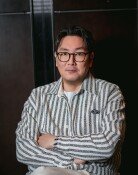"Kim Jong Il Likely to Visit Seoul This Year"
"Kim Jong Il Likely to Visit Seoul This Year"
Posted January. 20, 2007 04:59,
Former U.S. Defense Secretary William Perry argued on Thursday that if North Korea pursues mass production of nuclear weapons by expanding its nuclear facilities, the U.S. should destroy them preemptively.
Perry, who set preparations for a surgical strike against the Norths nuclear facilities as Defense Secretary under the Clinton Administration when North Korea triggered the first nuclear crisis in the early 1990s, expressed his opinion at a hearing on North Korean nukes before the U.S. House Foreign Relations Committee.
If North Korea continues to expand its nuclear facilities to be equipped with the capacity to produce 10 nuclear bombs per year, this will be a grave threat to the U.S., said the former defense secretary, If diplomatic efforts dont work, we should destroy their nuclear reactors in Yongbyon before they are set in motion. He also added that under such circumstances, military action is the only viable option.
After the hearing, the question most asked by the journalists was whether the U.S., after having exhausted its military resources by carrying out wars simultaneously in both Afghanistan and Iraq, has any political or military power left to strike North Korea.
Perry replied that while in Iraq, the U.S. is deploying its ground forces, what it takes to attack North Korea is air force. Perry, however, stopped short of answering questions of whether a surgical strike against the Norths nuke facilities is a plausible option from a political perspective.
He assessed that without South Korea and China joining forces in pressuring North Korea, the U.S. alone cannot prevent the North from mass-producing nuclear weapons, and allowing for North Korea to make nuclear bombs on a large scale could be even more dangerous than employing hardball diplomacy.
Meanwhile, former U.S. Ambassador to South Korea James Lilly, who was also present at the hearing, indicated that there is a high likelihood that North Korea supports the ruling Uri Party in the South Koreas presidential election and its leader Kim Jong Il will pay a visit to Seoul within the year.
Lilly also forecast that North Korea will encourage Bill Clinton to visit Pyongyang after the U.S. presidential election in 2008 in order to ask for aid, such as power-generating reactors, food and oil, from the U.S. just like it did through the 1994 Geneva Convention agreement.
The former ambassador, however, declined to explain the background for such a prediction.
srkim@donga.com







